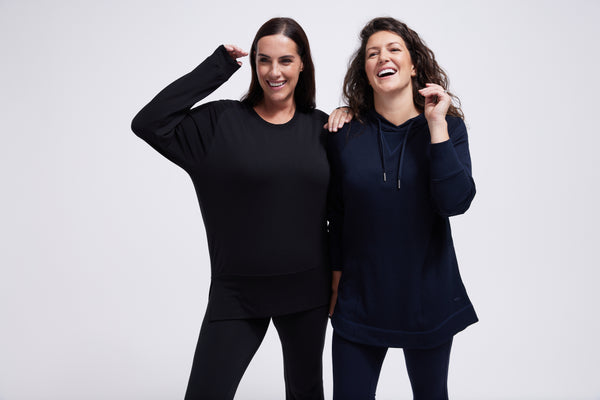
Men Just Don't Get It!
We have over the last two years at Rey House been gathering lots and lots of data both qualitative and quantitative, basing our research on looking at the problem of clothes not fitting properly. We have enough information now to know that the industry has got work to do to try and fix this problem because the costs to the planet, consumer pockets and health and well-being are far to large to ignore.
We have spoken to women from all walks of life, demographics, ethnicity, socio-economic status and we can categorically say that 100% of the women we have spoken to said there is a problem. No one knows what size they are in any given retailer, every person has some idea of the styles that suit them but, there is no consistency in this. Everyone agrees that the quality has diminished over the years as prices have reduced and fabrics are not what they used to be. Most women find shopping and trying to find clothes to fit a depressing, demoralising experience and the old 80/20 rule, as quoted by Marciella a very experienced industry stylist said "We wear 20% of the clothes in our wardrobes 80% of the time, and the 80% is worn 20% of the time".
Now the trouble starts when we talk to men. Some men just get it straight away. However, many do not get it. So what are the reasons they don't get it?
1. A mans wardrobe is made up of a maximum of 12 styles. T-shirts, polo shirts, long sleeve shirts, short sleeve shirts, jeans, chinos, v-neck jumpers, crew neck jumpers, a formal suit or two, leisure sets (hoody and joggers) a couple of casual jacket styles, one that is waterproof a pair of shorts or two.
2. Generally men shop for clothing to replace what is worn out or no longer fits. As creatures of habit and the need and want to be comfortable, they know the brand or retailer that makes stuff for them.
3. Men are much more brand loyal than women and are much more trusting of a brand that reaffirms how they want to be seen. Ask a man about car brands, a golf brand, cycling brand or a brand of drink, if you challenge this statement.
4. Mens physiques tend to be more streamlined, they don't have boobs or hips to accommodate, they don't have an industry telling them that they need to wear this look, this season, this colour, this fabric, this style of jean, dress or shoe.
5. Men are more likely to put quality and comfort first and then style. Men are more likely to pay a bit more for something that they know they will wear a lot and they will wear it a lot, perhaps every day. In contrast a woman will want to buy a dress for the price of a meal out.
6. Mens sizing and grading systems in the industry are simpler. Collar size, chest size, waist size and trouser leg length are factual measurements, not a made up set of criteria.

Because of the last 6 statements men do not understand why us women are making such a fuss. They have never needed to give it any thought. So here is the thing, the womenswear market size is more than double that of men's so women are contributing more to landfill, carbon-footprint and waste. This needs to be addressed and we at Rey House believe that this can be helped by identifying what shape real women are and in turn designing clothes that fit those bodies and are made to last using good quality materials and making standards. By scanning bodies and using the data we have established the shape and size of real women in the UK and it is nothing like the bulk of the fashion industry thinks it is.






